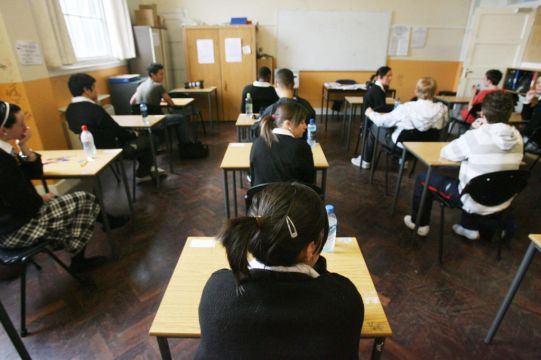The number of primary school children who missed a significant amount of school increased substantially in the space of a year, new research has found.
Minister for Children Roderic O'Gorman published the latest State of the Nation's Children on Thursday. The report is published once every two years, looking at all aspects of children's lives in the State.
The research found that during the 2021/2022 school year, 40.3 per cent of primary school children were absent for more than 20 days.
The figure is up substantially on the rate noted in the 2020/2021 academic year, when 12.1 per cent of primary school students were absent for more than 20 days.
Under the Education (Welfare) Act 2000, schools must inform the Child and Family Agency if a child misses more than 20 days in a school year.
The number also increased at post-primary level, rising from 12 per cent in 2020/2021 to 26.8 per cent in 2021/2022.
Population
Overall, the research estimates there were 1,255,738 children living in the State in 2023, making up 23.2 per cent of the country's population.
In the Traveller Community, 14,142 children accounted for 1.2 per cent of the State's overall child population in 2022, and 42.9 per cent of the total Traveller population.
The same year, the research found there were 88,630 foreign national children, representing 7.3 per cent of the total child population.
In 2022, 15.2 per cent of children were considered to be at risk of poverty, up from 13.6 per cent the previous year, while 7.5 per cent experienced consistent poverty, up from 5.2 per cent in 2021.
The number of children in the care of Tusla fell slightly from 5,777 in 2021 to 5,626 in 2022.
In the final three months of 2022, 21,473 child welfare and protection referrals were made to Tusla, up from 19,580 the previous year.
Births to mothers aged 15-17 were down, falling from 181 in 2020 to 141 in 2021.
There were nine deaths by suicide among children aged 10-17, a reduction from 13 in 2020.
Relationships
The research also looks at child wellbeing and relationships, finding the majority of children aged 10-17 said they find it easy to talk to their mothers (83.3 per cent) and fathers (67.9 per cent) when something is really bothering them.
Over two thirds of 15-year-olds said their parents spend time just talking to them several times a week, and a similar volume said their parents eat a main meal with them several times a week.
Using International Obestity Taskforce Standards, the researchers found 76.9 per cent of first class children were in the 'normal' weight category in 2018, while 15.5 per cent were classified as 'overweight' or 'obese'.
In 2022, 8,826 children were registered as having an intellectual disability, while 6,340 children were registered as having a physical and/or sensory disability.
Just over half (57.6 per cent) of 10 to 17-year-olds stated they felt happy with the way they are, and 88.2 per cent said they were happy with their lives at present.
Alcohol & smoking
The study also found there were increases in the number of children aged 10-17 who said they have never smoked a cigarette or drank an alcoholic drink.
In 2018, 89.4 per cent of the cohort said they had never smoked cigarettes, while 69.4 per cent said they had never drunk alcohol.
In contrast, 6.9 per cent of children in the same age bracket said they had been drunk at least once in the past 30 days, and 2.4 per cent said they smoked cigarettes every week. However, both figures were down on 2014's results.
There was also a decline in the number of children who reported taking cannabis at least once in their lifetime, falling to 7.8 per cent in 2018.







